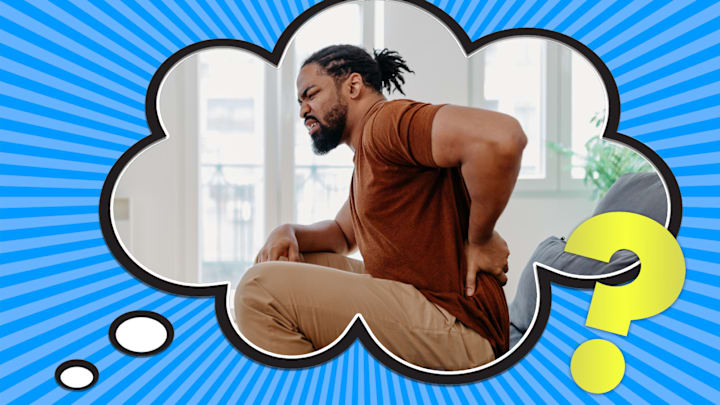Haurrrrrrk. Gnnnnnh. Ennnhh. These are sounds people make when lifting heavy objects, removing a splinter, or suffering from constipation. But for many people in their 40s and beyond, they’re also the noises that come out whenever they perform the amazing physical feat of sitting down on the couch or getting up from a chair. So why does it happen?
In speaking with MEL Magazine in 2021, chiropractor Robert Hayden had a succinct answer. “Rising from a chair calls upon core strength of the abdominal muscles,” Hayden said. “The older you are, the more likely you are to have had those muscles ravaged by time; the muscles that would be used to pull yourself to a seated position from recumbent, or to a standing position from seated, are weakened.”
“Sometimes, when straining with this kind of effort, people hold their breath in an attempt to augment muscle strength,” Hayden continued. “This may produce a grunting sound when breathing is resumed.”
Both sitting down and standing up require some level of core engagement—maybe not as much as balancing on a ball during a workout, but some nonetheless. By tightening the core, you may exhale with a grunt. Younger people don’t need to brace themselves in the same way, which is why a child can spring up from a sofa and begin dangling from a ceiling fan without so much as a peep.
But that may not be the only reason people grunt in the course of mundane physical activity. It could also be a verbal response to pain or stiffness that often accompanies aging. If you’ve been sitting for a while, muscles in your hips might be resistant to sudden movement. Letting out a nyehhh is reflexive.
Groaning isn’t always a product of discomfort. We may let out a hurrrkkk to signal to people that we’re having a little trouble. Sometimes, we may do it out of habit, having moaned in discomfort before and assuming we'll experience more of it.
Or, it may be that groaning could increase exertion in the way it seems to for tennis players or powerlifters. Letting out a guhhh might help an athlete return a serve more potently. In the general population, it may help you get up from a recliner. At a certain age, that’s as impressive a feat as winning the U.S. Open.
Have you got a Big Question you’d like us to answer? If so, let us know by emailing us at bigquestions@mentalfloss.com.
